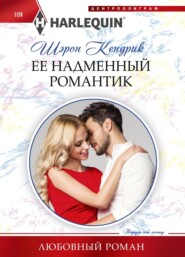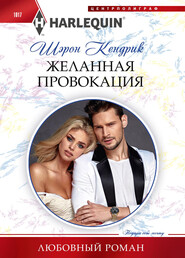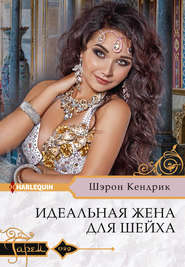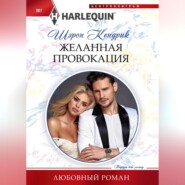По всем вопросам обращайтесь на: info@litportal.ru
(©) 2003-2024.
✖
Kiss And Tell
Автор
Год написания книги
2018
Настройки чтения
Размер шрифта
Высота строк
Поля
And Triss was unprepared for the relief which flooded through her as she caught sight of that magnificent mane of dark hair which grew down the tanned column of his neck. Too long and too tousled, it gleamed blue-black beneath the pale light of the March sun, with its riotous waves looking as though some frantic woman had just run her fingers all the way through it.
Triss swallowed down the dark, bitter taste of jealousy and looked into eyes as deeply blue as the finest lapis lazuli. Simon’s eyes, she thought suddenly, with the shock of recognition.
‘Hello, Beatrice,’ he said unsmilingly, and his voice sounded at once strange and yet poignantly familiar.
The Irish accent, she noted, was still intact, though now it held the faintest trace of a soft Mid-Atlantic twang. Hardly surprising, Triss supposed, seeing as how he had been living in the States since the age of sixteen.
‘Hello, Cormack,’ she said, her own voice sounding reedy and weak—but that was hardly surprising either. She had been unprepared for the impression he always made on her, and that was sheer stupidity. How on earth could she have forgotten just how devastating he was in the flesh?
He was dressed from head to toe in black leather. A leather jacket clung to shoulders as broad as a labourer’s and then tapered down to the curved indentation of his waist, and below the jacket were leather jeans—black and outrageously snug, the soft material caressing the muscular definition of his thighs, and on and on down his seemingly endless legs.
Leather, thought Triss despairingly. That most sensual of fabrics, with its sleek look and slick feel and its exciting, animal scent.
Those intelligent blue eyes didn’t miss a trick. He observed her gaze wandering, hypnotised, over every centimetre of his body. ‘Like it?’ he queried softly.
‘What?’ she whispered.
‘The leather.’ His eyes glittered. ‘Some women find it a turn-on.’
‘Is that why you wore it?’
‘I’m not sure. Perhaps subconsciously?’
‘You look like a labourer,’ she said sweetly. ‘Or a degenerate rock star.’
The first smile came then—a typically roguish Cormack-type smile—and Triss was unprepared for its impact. Stupidly unaware that the sight of it would set her heart racing as it had done so many times before. Damn him! she thought indignantly. He knows. He knows what that smile can do to a woman. And it’s an unfair advantage!
‘Well, that’s appropriate, isn’t it?’ he drawled. ‘As I’ve been both a labourer and a rock star. Though never degenerate.’ There was a long pause while he studied her. ‘You’ve had your hair cut, Triss,’ he said eventually, and there was an odd note of surprise in his voice.
Triss had been holding her breath, waiting for all the comments he could have made, and felt oddly disappointed that Cormack, of all people, should have said something so commonplace.
For the first time she felt a glow of something approaching achievement—that she had had the strength to remove the trademark which had eventually trapped her. ‘Yes,’ she agreed evenly. ‘All chopped off.’
‘When?’ he demanded, as though she were a suspect he was cross-examining.
This was a touch more difficult—she had had her thick red-brown hair shorn on the day she had discovered she was pregnant. It had seemed a very symbolic and necessary thing to do at the time. She gave a careless little shrug. ‘Can’t remember,’ she lied.
The blue eyes narrowed disbelievingly. ‘Really? Can you remember why you did it?’
Triss managed to return his hard, questioning stare. ‘Why shouldn’t I cut it? Models often change their image—’
‘But you don’t model any more, do you, Triss?’
Her eyes widened. How much, she wondered anxiously, did he already know? ‘Wh-what do you mean?’
He frowned. ‘Good God, woman—has your brain gone to mush, or are my questions so complex that I’m going to have to clarify each and every one?’
“There’s no need to be so sarcastic!’ Triss shot back furiously, remembering how his razor-sharp mind had always been able to make her feel so ridiculously inferior. But no more. No more. ‘Is there?’
‘No.’ He gave her a steady look. ‘OK, I presume that you’ve given up modelling—mainly because I never see you in any of the glossies these days. And you certainly aren’t very visible on the catwalk. Are you?’
Had he perhaps been following her career? Hope stirred foolishly in her heart, but Triss firmly repressed it. ‘No. That’s right. I’m not modelling these days.’
Arrogant black brows which looked as though an artist had swept them on darkly and indelibly against that high, intelligent forehead curved upwards in bemused question. ‘And why’s that? You were the best model of your generation.’
Trust Cormack, thought Triss in some alarm. He had always had the knack of getting to the point without any effort whatsoever. Give him a couple more minutes and he would have extracted her reason for inviting him here, and that was not her plan at all!
She did not intend to blurt anything out. Not now—not on the doorstep with a bitter March wind blowing up a storm around them.
She had planned it out so carefully in her mind. They were supposed to have a civilised period chatting together. A reacquaintance over the simple lunch she had prepared. Something calm and unemotional which befitted modern, enlightened exlovers who knew all the rules of the dating game. Before she dropped her bombshell.
‘Why don’t we go inside?’ she suggested quickly. ‘It’s warmer in there. The kettle is on the boil, and I’m making some soup.’ She cast up her eyes expressively at the oyster-grey sky. ‘It looks like soup kind of weather, doesn’t it?’
‘It sure does.’ His mouth moved in a sardonic twist, and he said nothing more as he followed her inside, but Triss could guess what he was thinking.
In the days when they had lived together Triss had scarcely known one end of a kettle from another. And their relationship had never progressed beyond the tempestuous passion stage to the living in relative harmony stage.
How people changed, she reflected as Cormack walked into the sitting room, shutting the front door behind him. Well, she had certainly changed—she had had to—but had Cormack?
‘You’ve lit a fire,’ he observed in surprise as he placed his helmet on the floor beside one of the armchairs and began to unzip his black leather jacket.
‘Yes.’ For the first time, humour danced in her hazel eyes.
‘And what’s so funny?’ he murmured casually, though his blue eyes were very watchful.
‘You,’ she answered without thinking. ‘Making all these conventional observations. It doesn’t sound like you at all, Cormack.’
‘And Triss Alexander lighting fires and boiling kettles and concocting soups—that doesn’t sound like you at all, either. So what do you think that says about us, hmm?’
Triss shrugged. ‘I’ll leave all the deductions to you, I think,’ she answered brightly. ‘After all, that’s what you’re good at.’
‘But I thought that you were the queen of jumping to conclusions,’ he parried softly. ‘After all, I only had to speak two words to a woman and everyone knew that I must be sleeping with her, didn’t they, Triss?’
His caustic words brought back the aching and humiliating memories of sexual jealousy, and Triss felt all the remaining colour drain from her cheeks.
Was she setting herself up for more of the same? The same kind of limbo she’d used to live in constantly when she was with Cormack? She had hated the person she’d eventually become—with her checking and counter-checking and her suspicions about him. Her insane jealousy had appalled both her and him, and yet she had been powerless to change her behaviour.
She drew in a deep breath. She had not brought Cormack here today to resurrect old battles. She was a mother now, and a responsible grown-up woman of twenty-four. She must lead by example, and surely if she was calm and mature and remained unruffled, then Cormack might behave likewise? ‘Are you hungry?’ she asked politely.
The ironic twist of his mouth acknowledged her formality as he sank down into the armchair nearest the fire, his leather clothes making little swishing sounds as the fabric moved in conjunction with his big, muscular limbs. ‘Starving,’ he admitted. ‘But I need a drink first.’
Triss was startled. She thought about the supplies she had brought with her. One bottle, and she wasn’t even sure if there was a corkscrew in the place. ‘I have wine,’ she told him rather hesitantly. ‘But that’s all.’
‘I meant tea, actually,’ he said, with a disbelieving little look at the grandfather clock which ticked loudly in one corner of the over-furnished room. ‘Goodness me, Triss,’ he murmured admonishingly. ‘Offering me alcohol before midday—what degenerate circles you must have been mixing in!’
If only he knew! ‘I’ll make a pot,’ she said stiffly, and headed off into the kitchen where she welcomed the chance to busy herself with kettle and cups and saucers. The activity stopped her from thinking too much, and she willed her hands to stop trembling, but they steadfastly refused to obey her.
He had not moved when she carried the loaded tea-tray back in and the sight of him in that tiny, old-fashioned room, all brooding masculinity and black leather, conjured up the image of something both sensual and forbidden.

















